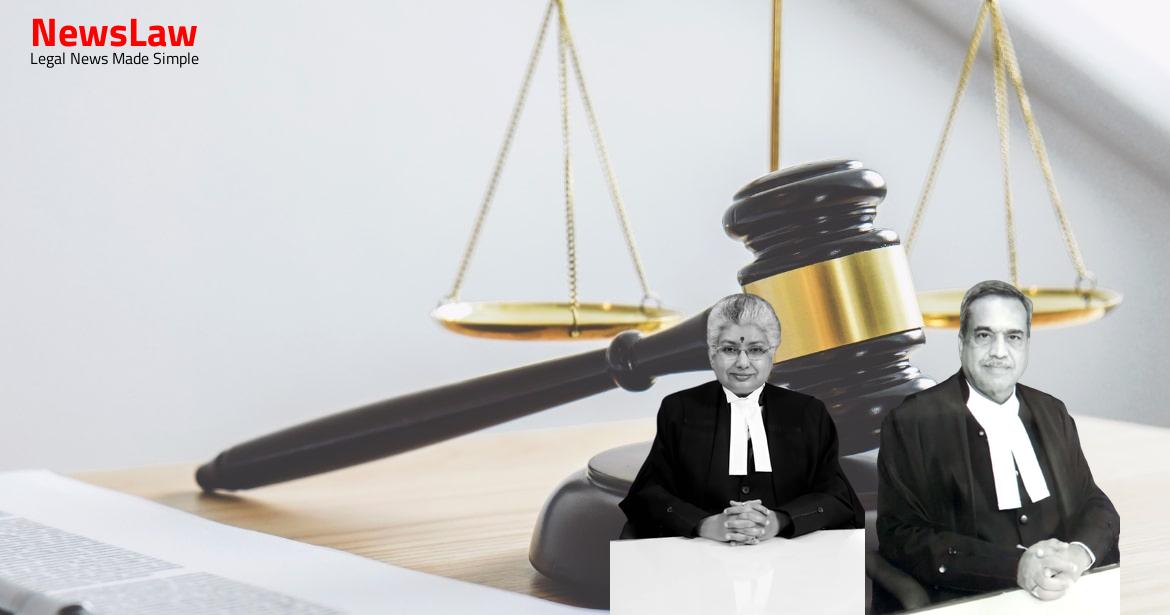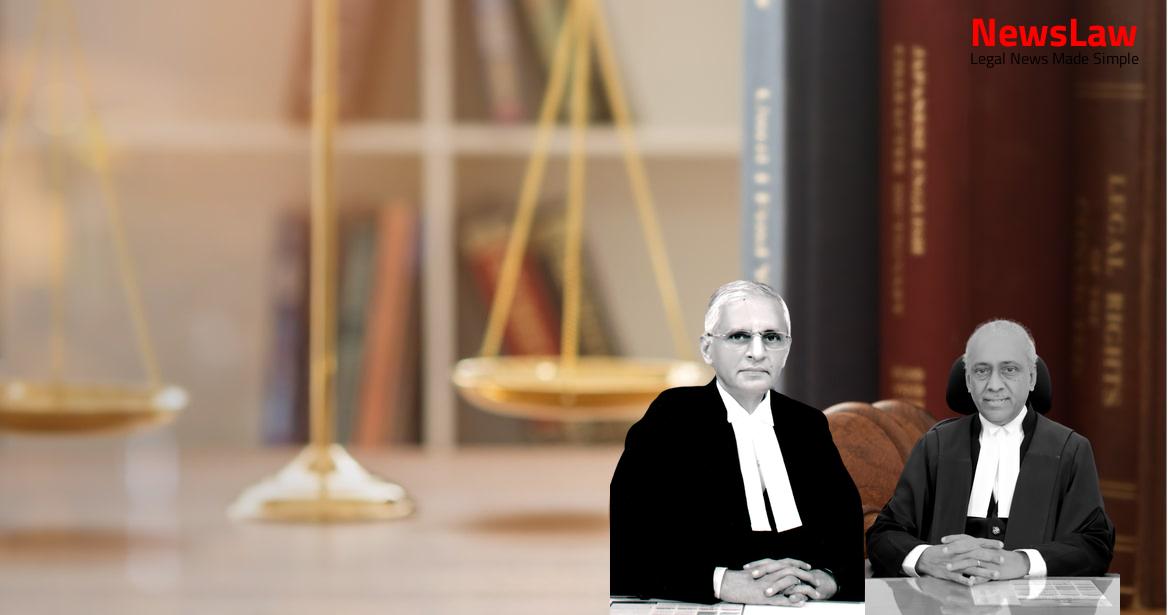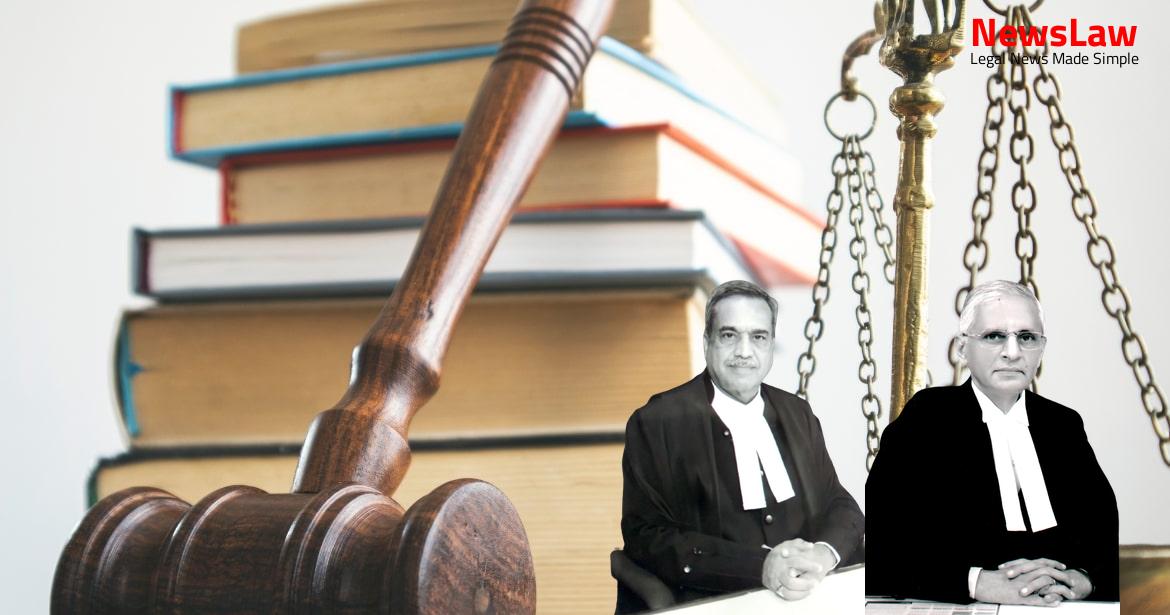In a recent legal judgment, the court delved into the intricacies of a land dispute case, highlighting critical aspects such as the law of limitation, validity of transactions, and the significance of registered documents. The court’s detailed legal analysis underscored the necessity for parties to adhere to legal timelines and procedures in property matters. Stay tuned for a closer look at the court’s reasoning and conclusions in this complex legal scenario.
Facts
- The First Appellate Court allowed the appeal and set aside the Trial Court’s judgment on grounds of limitation.
- The High Court, in a second appeal, quashed the First Appellate Court’s decision and restored the Trial Court’s decree.
- The appellant (original defendant No.1) challenged the High Court’s decision in the present appeal.
- The original plaintiff also appealed against the High Court’s decision, which favored the appellant.
- The High Court’s judgment declared the Sale Deed in favor of the appellant as null and void.
- The appellant, original defendant No.1, was unaware of the proceedings and changes made behind his back in the revenue records.
- The registered sale deed in favor of the appellant was executed almost five years after the agreement to sell.
- The original plaintiff filed a suit seeking cancellation of the sale deed and possession based on a collusive decree.
- The suit was resisted by the appellant, while the original defendant No.2 chose not to appear.
- The Trial Court decreed the suit in favor of the original plaintiff based on the collusive decree.
- The appellant filed a complaint of cheating and fraud against the original plaintiff and defendant No.2.
- The decree from the collusive suit was not registered or mutated in revenue records.
Also Read: Ruling on Circumstantial Evidence in Murder Case
Arguments
- Opposing counsel argues that the defendant had no valid title at the time of executing the sale deed due to a decree in favor of the plaintiff.
- The First Appellate Court set aside the Trial Court’s judgment and decree, which the High Court restored.
- The appellant is claimed to be a victim of fraud as the plaintiff obtained a collusive decree without due contest.
- The family settlement basis of the decree was not on record.
- The decree from Civil Suit No.1643 of 1994 was not registered or mutated in revenue records.
- The appellant took possession and cultivated the land after the sale deed, which was mutated in revenue records.
- The suit was filed after a period exceeding the limitation period.
- Registered Sale Deed dated 19.04.1996 in favor of the appellant was found to be executed by a person with no title.
- Being a nullity, the Trial Court rightly decreed the suit for declaration declaring the Sale Deed as null and void.
Also Read: Challenging Legal Presumptions in Negotiable Instrument Cases
Analysis
- The suit filed by the original plaintiff for cancellation of the Sale Deed dated 19.04.1996 was found to be barred by the law of limitation.
- The original defendant No.2 did not contest the suit and the earlier decree obtained by the plaintiff was deemed collusive.
- The appellant, original defendant No.1, was a bona fide purchaser who had paid the full sale consideration.
- The High Court erred in allowing the Second Appeal without proper consideration of facts.
- The suit for cancellation of the sale deed needed to be filed within three years of knowledge of the deed.
- The submission regarding the twelve-year limitation for possession was not accepted, as the suit focused on cancellation of the sale deed.
- The impugned judgment and order passed by the High Court is unsustainable and deserves to be quashed and set aside.
- The High Court did not consider whether the suit was barred by limitation or not, which should have been considered.
- Several key aspects considered by the First Appellate Court were not taken into account by the High Court.
Also Read: Legal Analysis of Admission Irregularities in Educational Institutions
Decision
- The present appeal has succeeded.
- No order as to costs has been passed.
- The impugned judgment and order of the High Court dated 29.09.2016 have been quashed and set aside.
- The judgment and order of the First Appellate Court have been restored.
- Consequently, the suit filed by the original plaintiff stands dismissed.
- The present appeal has been allowed.
Case Title: RAJPAL SINGH Vs. SAROJ (DECEASED) THROUGH LRS (2022 INSC 589)
Case Number: C.A. No.-003489-003489 / 2022



